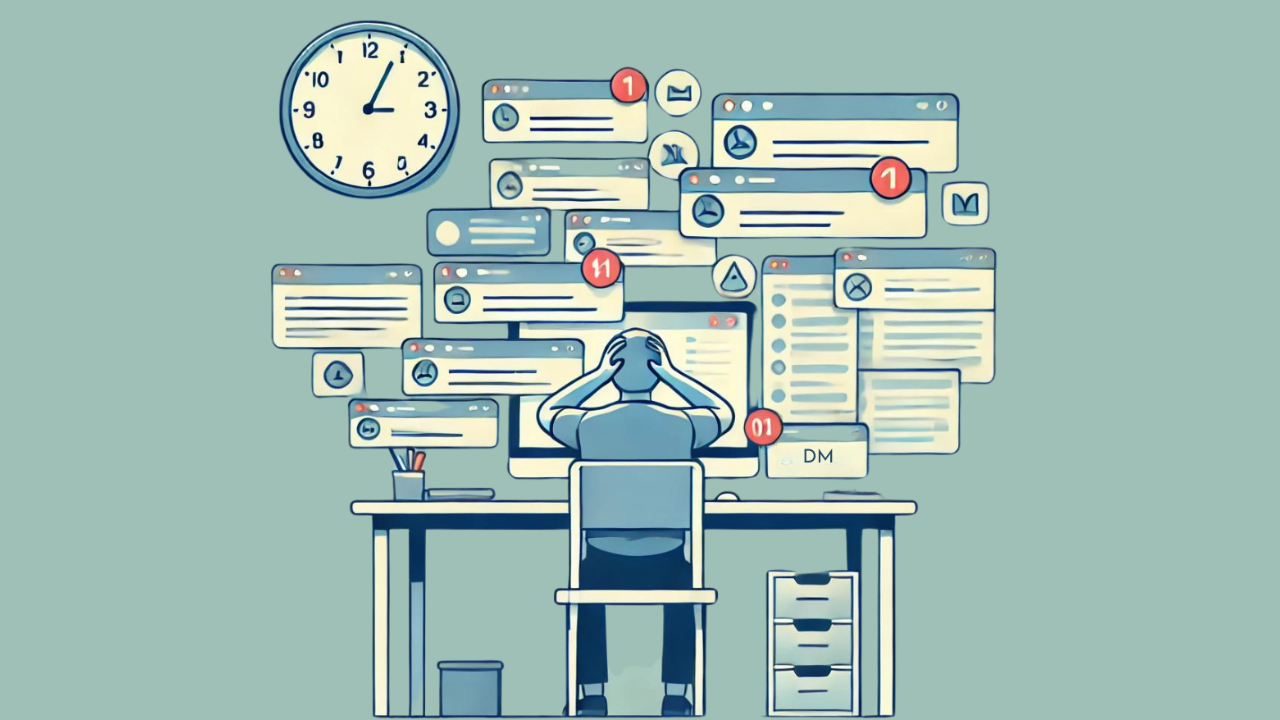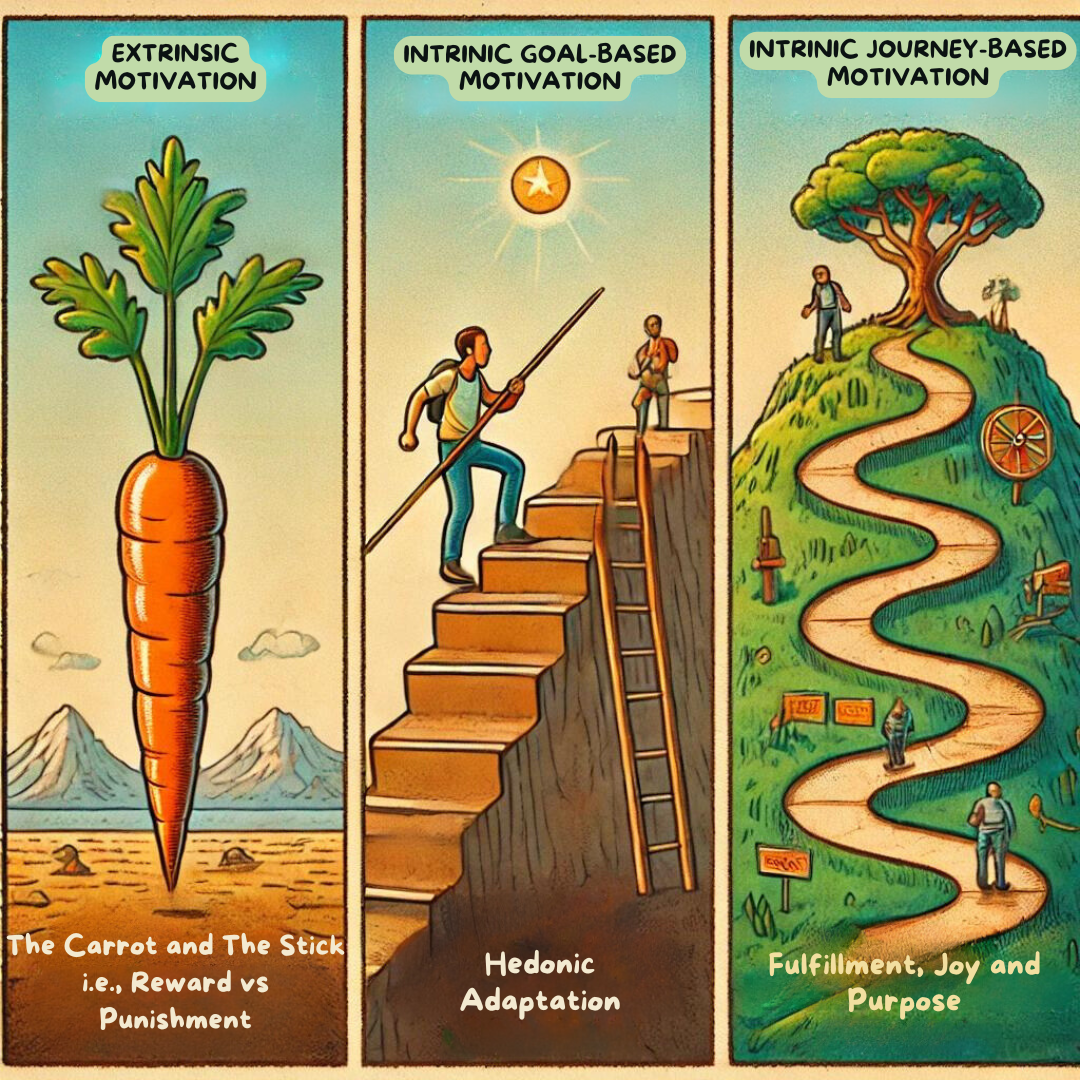Overcoming Procrastination: Strategies for Taking Action
Aug 18, 2024
The Silent Productivity Killer
We’ve all been there—clear goals, a to-do list in hand, yet somehow, we find ourselves scrolling through social media or organizing our desks instead of tackling the tasks at hand. Procrastination is a sneaky productivity killer, but it doesn’t have to control you. This article explores why we procrastinate, when it can actually be beneficial, and the best strategies to beat it once and for all.
Understanding Procrastination: More Than Just Laziness
Procrastination is often misunderstood as simple laziness, but in reality, it’s a complex interplay of psychological factors, environmental influences, and motivational dynamics that can either hinder or enhance productivity.
Psychological Factors:
-
Fear of Failure: The fear of not meeting expectations can be paralyzing, leading us to avoid tasks altogether. Reframe failure as a learning process—each attempt is progress.
-
Perfectionism: The pursuit of flawless work can make starting feel overwhelming. Adopt a "draft mentality"—focus on progress over perfection.
-
Instant Gratification: Our brains crave immediate rewards, making distractions tempting. Try temptation bundling—pair a dull task with something enjoyable (e.g., listening to a podcast while doing admin work).
-
Analysis Paralysis: Overthinking can lead to decision paralysis. Set time limits for decisions and focus on taking action over seeking perfection.
Motivational Dynamics:
In The End of Procrastination, Petr Ludwig identifies three types of motivation:
-
Extrinsic Motivation: External rewards or punishments (e.g., deadlines, bonuses). Effective but unsustainable.
-
Intrinsic Goal-Based Motivation: Driven by achieving specific goals. Can lead to burnout if constantly chasing new milestones.
-
Intrinsic Journey-Based Motivation: The most sustainable—enjoying the process itself. Ask: How can I make this task meaningful or enjoyable?

When Can Procrastination Be Productive?
Procrastination is often seen as negative, but strategic procrastination can actually boost productivity:
-
Active Procrastination: Working on smaller, productive tasks before tackling a larger one to build momentum.
-
Creativity and Problem-Solving: Taking breaks allows the subconscious mind to generate creative solutions.
-
Prioritization and Focus: Delaying less important tasks can help you focus on what truly matters (structured procrastination).
-
Stress-Induced Motivation: For some, the pressure of a looming deadline enhances efficiency.
-
Avoiding Unnecessary Tasks: If you keep delaying a task, ask: Is this really necessary?
Strategies to Beat Procrastination
1. Boost Your Motivation
Shift to intrinsic journey-based motivation by making the process itself rewarding. Find ways to enjoy the task rather than just focusing on the outcome.
2. Optimize Your Environment
A cluttered space can lead to distractions. Create a dedicated, organized workspace. Consider using different zones for different tasks (e.g., deep work vs. admin work).
3. Plan for Procrastination
Recognize that breaks are necessary. Use structured breaks (like the Pomodoro Technique—25 minutes of focus, 5-minute break) to recharge and return to tasks with renewed energy.
4. Limit Analysis Paralysis
Set a time limit for decisions. Focus on making a good decision, not the perfect one. Action is often better than endless deliberation.
5. Seek Accountability
Having an accountability partner, coach, or support system can help you stay committed to taking action.
Procrastination at Work vs. Home
Work Procrastination:
Often driven by overwhelming tasks or unclear goals. Break down large projects into smaller, manageable tasks. Prioritize them using a task management system.
Home Procrastination:
Distractions at home can derail personal projects. Set specific times for tasks and stick to them. Establish a routine that balances both work and relaxation.
Practical Tips for Beating Procrastination
✔ Remove Yourself from Distractions
Change your environment if necessary—work from a library or café if home distractions are too tempting.
✔ Use Focus Tools
Turn off notifications, use focus apps, and create a quiet, distraction-free workspace. Try apps like Focus@Will for background music designed to improve concentration.
✔ Set Clear Objectives
Outline your goals and the steps to achieve them. Use SMART goals (Specific, Measurable, Achievable, Relevant, Time-bound) to clarify objectives.
✔ Stay Flexible
Life happens—adapt your plans without feeling discouraged. Progress over perfection.
Final Thoughts: Progress Over Perfection
Procrastination doesn’t have to be an insurmountable obstacle. By understanding its root causes and implementing strategies to overcome it, you can take control of your time and productivity.
✅ Start today—choose one strategy and apply it immediately. ✅ Make progress, not perfection. ✅ Take action now and reclaim your time!
Resources and Further Reading:
📖 The End of Procrastination – Petr Ludwig
📖 Atomic Habits – James Clear
🎥 Inside the Mind of a Master Procrastinator – TED Talk by Tim Urban
📝 The Science of Procrastination – Psychology Today
Work With Me: Beat Procrastination & Achieve Your Goals
Are you struggling with procrastination and need personalized guidance? As a high-performance coach, I help professionals like you overcome procrastination, set clear goals, and achieve more with less stress.
📅 Book a Free Discovery Session HERE to get started on your journey toward productivity and success.
About Me: I’m Rafic Osseiran, founder and coach at Profound Living. With over 10 years of experience in personal development, leadership, and high-performance coaching, I’ve helped professionals break through procrastination, optimize their time, and maximize results.
🚀 Subscribe for More Insights Want more strategies on productivity, mindfulness, and peak performance? Subscribe to my free weekly newsletter, Peak Performance Insider, and never miss an update!

